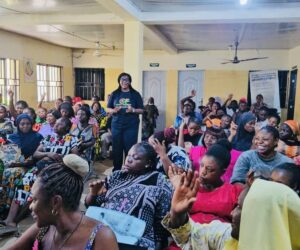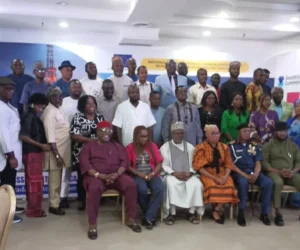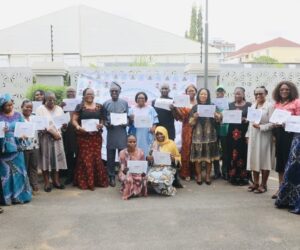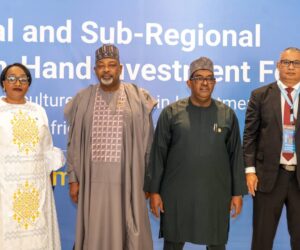By Gabriel Agbeja
The Customs Officers Wives Association (COWA) has announced plans to plant 5,000 trees across 50 Nigerian border communities.
The initiative marks a major step toward promoting climate action in border areas.
The programme is designed to strengthen environmental resilience in some of the country’s most vulnerable regions, targeting communities heavily affected by deforestation, land degradation and other climate-related challenges.
COWA President Kikelomo Adeniyi disclosed the initiative during the global unveiling of the Green Borders Sustainability Initiative on the sidelines of the COP30 United Nations Climate Change Conference in Belém, Brazil.
Adeniyi said the pilot communities spanned 21 states and 105 local government areas.
She said the programme included training 1,000 women and youths in waste segregation, plastic recycling and clean-energy enterprises, alongside establishing solar-powered eco-hubs designed to operate as community clean-energy and recycling centres nationwide.
Adeniyi announced plans for a N15 billion sustainability and innovation centre to provide climate education, vocational training and renewable-technology development for 5,000 beneficiaries annually, strengthening national capacity for green enterprise and environmental stewardship.
She stressed that border communities faced early impacts of deforestation, pollution and desert encroachment, explaining the initiative aimed to deliver climate solutions directly to areas where environmental degradation and human vulnerability intersected most severely.
According to her, the year-long pilot aligns with Nigeria’s Nationally Determined Contributions and global sustainability goals, positioned as a replicable African model linking family, trade and environmental care across multiple border communities.
She appealed to development agencies, donors and private partners to support construction of the COWA sustainability centre in Abuja, describing it as West Africa’s first specialised institution for women-led climate education and capacity development.
Adeniyi called for technical organisations, private investors and international NGOs to collaborate on tree-planting, recycling and solar deployment, adding that women-led grassroots leadership could drive national progress in climate responsibility and sustainable development. (NAN)(www.nannews.ng)
Edited by Abiemwense Moru








